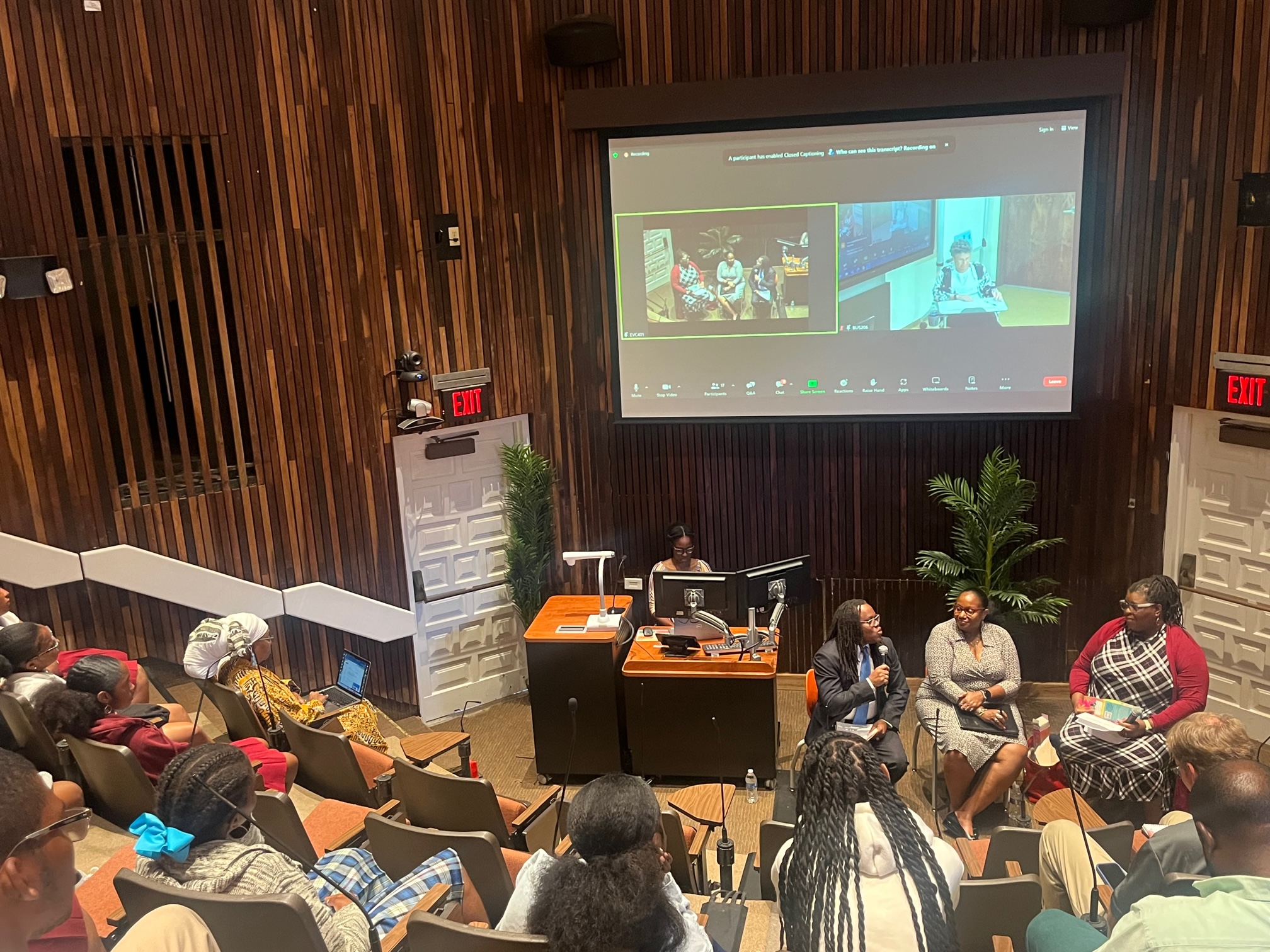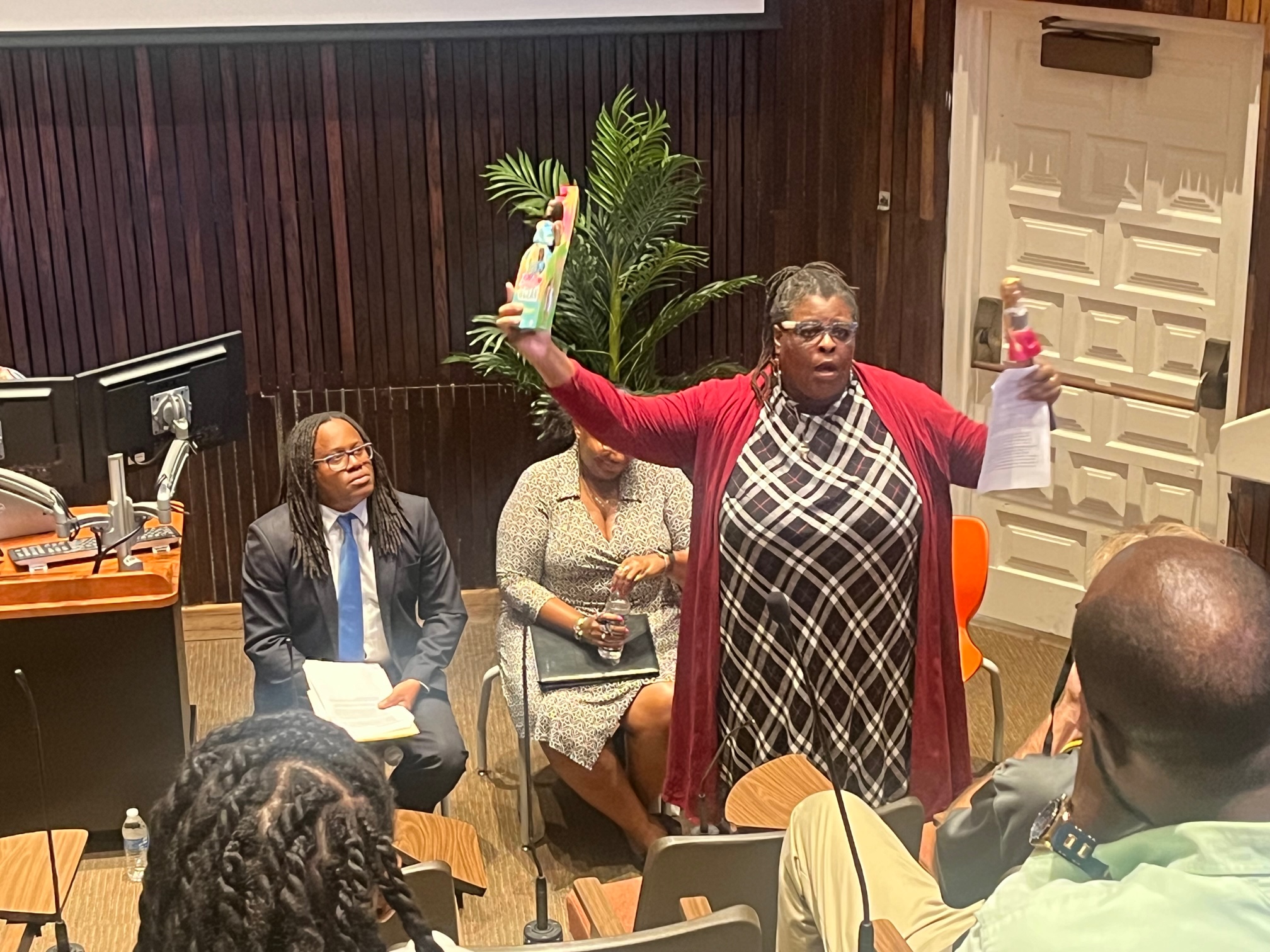
The University of the Virgin Islands Albert A. Sheen Campus on St. Croix hosted a fireside chat for the 70th anniversary of Brown vs. Board of Education on Wednesday.
Moderator and U.S. District Court Magistrate Judge Emile Henderson took the audience on a step-by-step journey from 1896 to 1954 by asking questions to a panel of experts that included U.S. Magistrate Judge Ruth Miller, District Court of the Virgin Islands, Chief Disciplinary Counsel Tanisha Bailey-Roka, Esq. Supreme Court of the Virgin Islands, and Librarian Aesha Duval, District Court of the Virgin Islands.
Students from both the St. Croix Educational Complex and the St. Croix Central High School attended the event.
UVI’s College of Liberal Arts and Social Science hosted the fireside chat to discuss the ruling where the U.S. Superior Court decision made racial segregation illegal in public schools, overruling the “separate but equal” principle set forth in the 1896 Plessy vs. Ferguson case.
“Separate but equal was the law of the land. We talked about what that was like, it wasn’t just schools it was everything. Churches, libraries, jails, doctors’ offices, everything was separate. There were studies done like what does it do to the psyche of the mind of a child to be told you are not worthy of this. The reality was that the treatment was not equal,” said Aesha Duval, librarian from the District Court of the Virgin Islands.
Plaintiff Oliver Brown filed this lawsuit in 1951 in Topeka, Kansas, after his daughter Linda Brown was denied access to an all-white school 20 minutes from her home due to Plessy vs. Ferguson. The school she was required to go to was about two hours away from where they lived. His position was, “Why should I send my child to a school two hours away?”
What made the argument in this case effective was that “they centered the argument on children. This time around it was centered around children,” said Henderson.

A prime example of how this was administered was displayed by Bailey-Roka, who used the Kenneth and Mamie Clark experiment. Bailey-Roka used two dolls, one Black and one white to ask a series of questions. “This is a test that they did with the young people.” Some questions she asked the audience were, “Which one of these dolls are a white or Black doll? Which one of these dolls have a nicer color?”
The majority of the crowd gravitated to the Black doll or both dolls in a positive way. “The test that you just did is so beautiful because you guys gave answers that included yourself. The children before you were informed by images that they were ugly,” Bailey-Roka said.
On May 17, 1954, U.S. Supreme Court Justice Earl Warren delivered a unanimous vote of 9-0, ruling in the case. The state-sanctioned segregation of public schools was a violation of the 14th Amendment and, therefore, unconstitutional.
During the question-and-answer portion, students were able to ask questions and make comments. In an impressive display, the students asked excellent and insightful questions and comments. These students were from the St. Croix Educational Complex, students from Close Up, and the physics quiz bowl team.
Twelfth grader Keanna Alphonse asked, “How do we get past the delusion that things are changing today?” Bailey-Roka said “In a democracy, we are striving ever to have a more perfect union. That means we are imperfect, that means that we are not equal, yet. Democracy requires participation in order for it to function well.”
Roka then challenged Alphonse and asked what she was doing. She said she was a strong advocate and had participated in protests for her school.
Also, from the St. Croix Educational Complex, ninth grader Yaddayyah Leo made a comment and said, “The statement you said is separate but equal. There is a division between what is equal and what is equity. At that time, initially, I kind of understood where they were coming from by definition. It was equal per se but not necessarily equitable.” She also added, “It’s interesting to see how back in the day we pushed for integrated schools, and we pushed for non-segregation. I notice we are being prideful for going to all Black schools or all Black institutions. We are essentially segregating ourselves willfully.”





